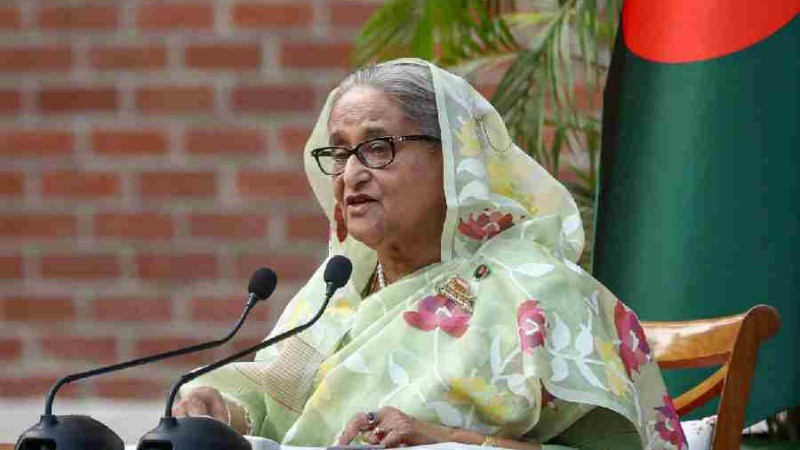
Bangladesh's interim government has revoked the passports of 97 individuals, including former Prime Minister Sheikh Hasina, as part of an investigation into their suspected roles in the deadly uprising that occurred in July. This move comes in the wake of mounting pressure and scrutiny over the violent events that left numerous casualties and triggered national unrest. The decision to strip these individuals of their travel documents is seen as a part of the government's efforts to hold those allegedly responsible accountable. The government has stated that it is working to uncover the full extent of the involvement of the accused in the tragic events, signaling a tough stance on anyone linked to the violence that shook the country.
The violence resulted in numerous deaths and disappearances, and the cancellation of these passports marks a major escalation in the ongoing investigation. Out of the 97 individuals affected, 22 had their passports cancelled due to their involvement in enforced disappearances, while 75 others, including Hasina, faced passport revocation due to their role in the violence during the uprising. Abul Kalam Azad Majumder, the Deputy Press Secretary to the Chief Adviser, explained at a press briefing that the Passports Department took action against those linked to both disappearances and the killings, specifically naming Hasina among those implicated.
Arrest Warrant Issued for Hasina
The decision to cancel the passports follows closely behind the International Crimes Tribunal's issuance of an arrest warrant for former Prime Minister Sheikh Hasina and 11 other individuals, accusing them of involvement in the controversial cases of enforced disappearances.
Justice Md Golam Mortuza Mojumder, Chairman of the ICT, ordered the accused to appear in court on February 12. This is the second arrest warrant issued against Hasina, who fled to India in August following the collapse of her Awami League-led government amid widespread anti-government protests.
Legal and Humanitarian Concerns
The legal scrutiny surrounding Hasina's tenure has intensified in recent months, with prosecutors accusing her administration of crimes against humanity and genocide during the violent uprising. Chief Prosecutor Mohammad Tajul Islam has claimed that elite law enforcement units, such as the Rapid Action Battalion (RAB) and the Directorate General of Forces Intelligence (DGFI), were involved in abductions and disappearances, with many victims never returning.
Multiple Allegations and Cases
Hasina now faces multiple charges, including genocide and crimes against humanity, with the ICT registering numerous cases against her. A commission set up by the interim government reported 1,676 complaints of enforced disappearances during Hasina's time in office, with 27% of the victims still unaccounted for.
In December, the interim government formally requested India to extradite Hasina, but New Delhi has yet to make any public comments on the matter, despite confirming receipt of the request.